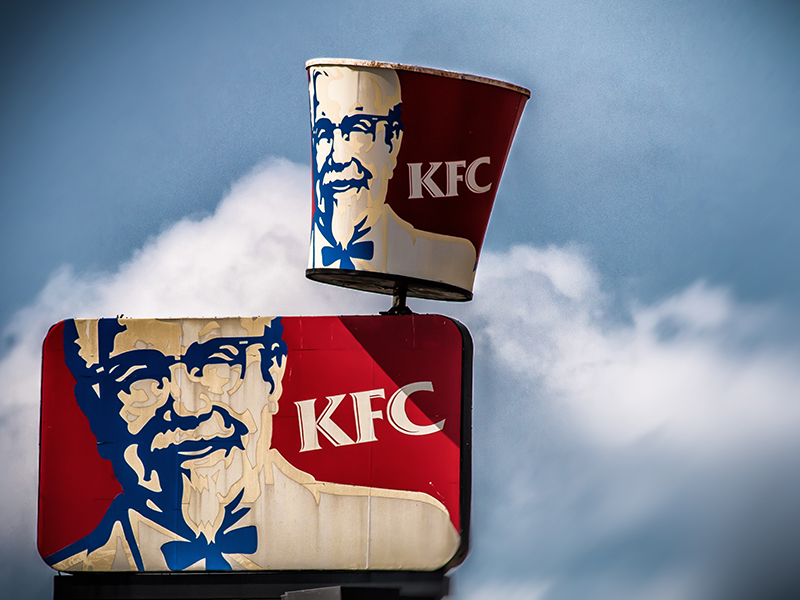(RNS) — The owner of eight Kentucky Fried Chicken franchises in Illinois may not advertise that the chicken he sells is halal, even if it is, a federal judge has ruled.
The owner of the franchises, Afzal Lokhandwala, a Muslim, sued KFC, arguing that the chain had initially agreed to allow him to advertise that his chicken met Islamically approved slaughter requirements beginning in 2002.
But Judge John Robert Blakey of the U.S. District Court for the Northern District of Illinois ruled that KFC has “the absolute right” to approve or deny any advertising by franchise owners in their stores.
In 2009, the fast-food chain decided it could not promise halal food — required by observant Muslims — or kosher food — required by observant Jews — because of varying interpretations of what constitutes acceptable food within those religious groups. The chain said it could also not certify that some chicken parts were not cross-contaminated with nonhalal or nonkosher parts.
Lokhandwala’s halal advertising had proved to be quite lucrative for his businesses — so much so, he said in the suit, that he selected the locations for the five franchises he opened in 2012 because of their proximity to Muslim communities. He also said the 2009 policy would force him to close some of his restaurants.
The chicken-on-the-bone products Lokhandwala sold came from halal-certified poultry processors that KFC approved. The chicken tenders were not, and Lokhandwala informed customers of the difference.
“Thousands of Muslims within the Chicago metropolitan area eat at plaintiffs’ restaurants because they know Afzal is Muslim and the restaurants sell halal chicken,” according to the complaint.
Lokhandwala argued that KFC never mentioned the policy change and asked the judge to declare that enforcement of the policy is in bad faith.
But the judge found that the contract gives KFC complete control over how its product is marketed.
“The franchise agreement unambiguously entitles Defendant to control Plaintiff’s advertising or marketing at his franchises,” he wrote.
Lokhandwala immigrated to the U.S. from India in 1989. He first worked as an assistant manager at a KFC on the South Side of Chicago.





